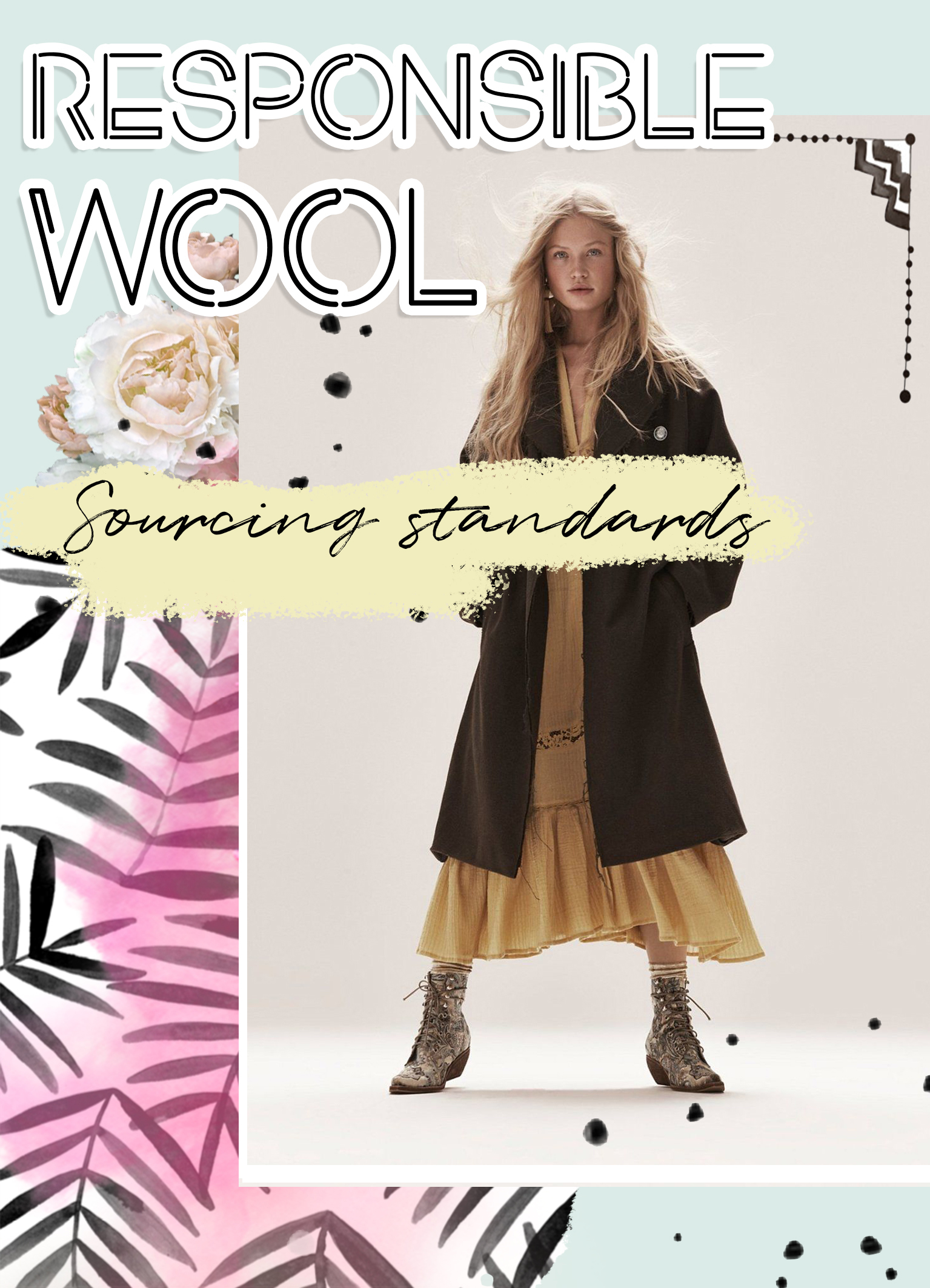Wool is undoubtedly one of the most important and most used materials in garment manufacturing. What comes to your mind when you think of wool? The softness, the comfort, the warmth? But how often do you think about the sheep that wool comes from, and whether you are buying responsibly or not? Just to make things clear, “responsible”, as defined by the Oxford Dictionary, means being “morally accountable for one’s behaviour”.
Many fashion brands often wake up to the PR nightmare when they are exposed by animal-rights groups of engaging in animal-cruelty in their supply chain. As consumers become more conscious of where their wool is sourced, it is important for retailers to ensure their wool suppliers use ethical and sustainable practices, and what better way to do so than through a certification such as the RWS?
What is RWS?
The Responsible Wool Standard is an independent, voluntary global standard that verifies the process by which wool is produced. The goals of RWS are to create an industry benchmark to drive improvements in the welfare of sheep and progressive land management, and to provide a fully traceable supply chain, so that consumers have confidence in the wool products they choose.
Referencing the standards and best practices around the world, RWS was developed according to The Five Freedoms of sheep, all of which must be respected by certified organisations at all times:
1. Preserving Land Health: progressive methods of land management – protecting soil health, biodiversity, and native species
2. Supply Chain Traceability: maintain identity of RWS wool consistently from the farm to the final product
3. Credible Certification: a professional, third-party certification body audits each stage in the supply chain annually
4. Confident Communication: only products with 100% certified wool can carry the RWS logo
5. Stakeholder Engagement: standard was developed with the participation of all relevant stakeholders from all around the world
The standard ensures that wool from certified farms is properly identified and tracked throughout all the stages in the supply chain.
In 2014, H&M got in touch Textile Exchange (TE) with hopes to address their wool supply. TE is a non-profit organisation promoting sustainability in the textile industry. TE decided to involve the fully industry to develop the RWS into a global standard, and established the International Working Group (IWG) was established. The IWG represents the broad spectrum of relevant stakeholders, including farmers, animal welfare groups, land conservation experts, supply chain members, industry associations, as well as apparel, home, and carpeting brands. The final standard was released in June 2016.
Now, there are certified farms across all of the major wool growing regions in the world. As one of the prominent global wool standards, RWS has gained widespread support in the textile and apparel industries; the driving brands behind the standard include H&M, Kering, Patagonia, and Outdoor Industry Association.
Why Become RWS Certified?
More often than not, cost efficiency is the highest priority for companies. There have been claims made by PETA that the shearing of sheep is often performed under immense time pressure because of constraints in cost, which could lead to high levels of stress and injuries for the sheep. For sheep farmers, the RWS certification provides recognition for the practices happening at the farm level. It is an opportunity for farmers to demonstrate their sustainable and responsible methods of farming, and allows them to meet consumer, retailer, and brand demands.
For businesses, the RWS enables textile and apparel industries to attain wool in a way that aligns with their sourcing policy and that meets their corporate responsibility goals. Being RWS certified means that business will be able to make claims about their wool sourcing with confidence and transmit this to their customers.
How Do We Benefit?
As we mentioned before, wool is an essential material for many of our apparels. Naturally, the benefit for us is very straightforward. The standard is a means to be certain that the wool products we buy and sell are in line with our values.
How Can We Take Action?
In order for us to benefit from the standard, first we must adjust our mindset to being more conscious of responsible wool. Then everything is put into perspective. Without a standard like RWS, this level of constructive change wouldn’t even be possible, so we’ve already made a good start. Nonetheless, it will take time and constant commitment from farmers, brands, suppliers, animal welfare experts, as well as us, to transform the industry with the positive practices we are trying to achieve on sheep farms around the world.
Want to find out more about RWS?
Visit: http://responsiblewool.org/
Want to search for RWS certified organisations?
Visit: http://responsiblewool.org/find-rws-certified-organizations/

No Comments